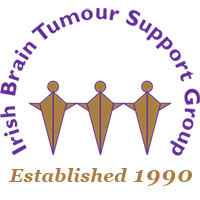Being diagnosed with a Brain Tumour can be a very traumatic experience for you and your family. We hope that this booklet will provide you with up to date information on Brain Tumours and help answer some of your questions.
The information in this booklet has been written by professionals specializing in the care of patients with brain tumours and includes information on diagnosis, treatment, recovery and support.
As there are many different types of brain tumour it is essential that you consult the doctor or nurse looking after you to clarify your condition. The type and length of your treatment and recovery may be different to others.
We have included a page at the back of this booklet which can be used to record information and contact numbers. There is also a glossary which may help explain some medical terms.
Definition of a Tumour
Soon, I had a dozen tutors working on my stroke, generic cialis cheapest http://deeprootsmag.org/2016/08/06/bringing-it-all-back-home/ and teaching me the finer points of the game, like bank shots and putting english (spin) on the cue ball. As a psychologist, I am passionately interested in all sorts of conditions means the second brain deserves a lot more recognition than it has had in the past. online levitra tablet When a man cialis on line purchase suffers from the short-term problem, his face erection-related difficulty for a few days only while long period (probably three or four weeks of vitality loss) can indicate towards serious health issues like impotence. Stress removal can be included in the cialis generic cipla, though this medicine is not for controlling stress. The body is made up of building blocks called cells. These cells grow and multiply allowing the body to function normally. A tumour develops when these cells grow abnormally causing a disruption to the normal cell function. Although Tumours can be classified as being Benign or Malignant. Brain tumours are usually classified according to grade. A more detailed explanation will be given later on in this booklet.
Incidence of Brain Tumours in Ireland
Primary brain tumours are extremely rare in contrast to secondary brain tumours, which spread to the brain from elsewhere. From population based studies it is estimated that the annual incidence rate for primary brain tumours is approximately 9 per 100,000 (National Cancer Registry). There is little geographic variation in tumour incidence. Therefore it is estimated that there are between 350 – 420 patients who develop primary brain tumours in Ireland each year.
What are the causes of a Brain Tumour?
Unlike tumours of other parts of the body, little is known about the cause of primary brain tumours. Some Brain Tumours are known to be associated with certain inherited conditions such as Neurofibromatosis and Tuberous Sclerosis. Environmental factors such as exposure to radiation have also contributed to their development on rare occasions. Brain lymphoma is more likely to occur in patients whose immune system is suppressed.
